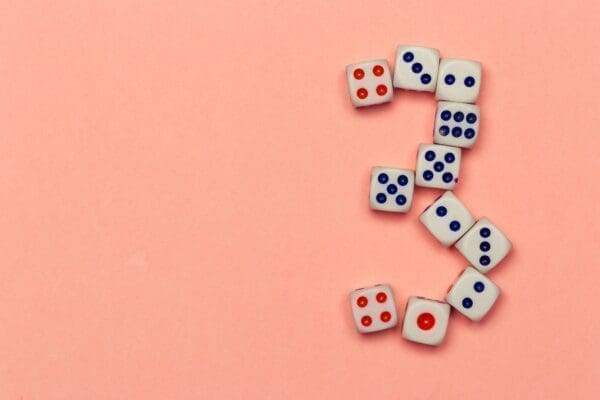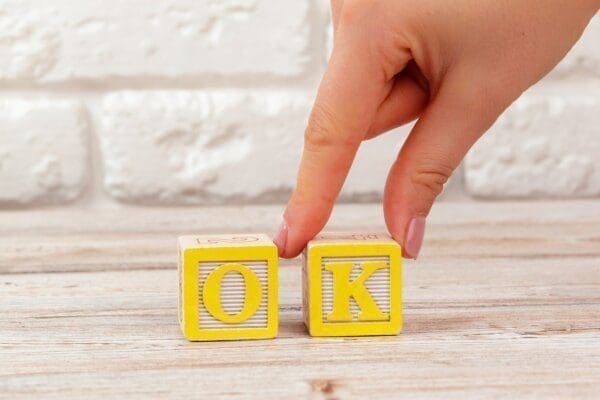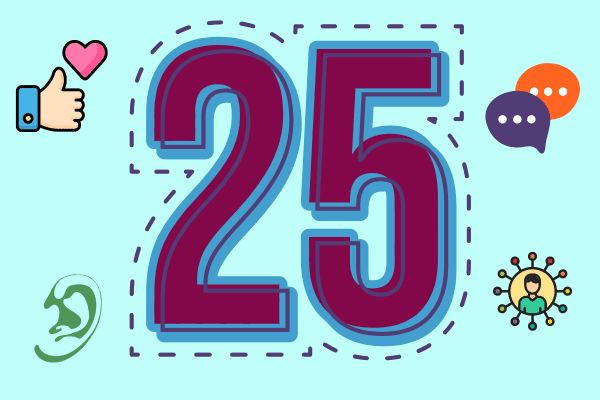One of the exciting things about Transactional Analysis is the simple models and language it employs, which help you to understand why you have become who you are today and how (and in what ways) you relate to other people.”
– Counsellor Patricia Lyon (MSc Psychotherapy; Dip TA Counselling).
The late Dr Eric Berne created the psychological theory known as ‘Transactional Analysis’ (TA). It has proven to be very successful and widely used. Every person benefits from being able to understand transactional analysis. You might be a working professional, an entrepreneur, a student, or a stay-at-home mom! Anyone can use the TA model to enhance their communication with others and themselves.
Picture this: you find yourself in yet another argument, feeling like you’ve had this same frustrating conversation a hundred times before. It’s like a scene from a movie on constant replay, and you’re tired of playing the same role.
Enter the world of Transactional Analysis, a captivating psychological framework that peels back the layers of our interactions. It’s more than just deciphering communication; it’s about understanding the intricate scripts we follow in our relationships.
Join me on a journey through the fascinating landscape of Transactional Analysis, where unravelling the patterns of human connection might just be the key to breaking free from the scripts that keep us stuck.

>> Advanced Grow Coaching Cards <<
>> Shop on Amazon <<
What is Transactional Analysis?
The International Transactional Analysis Association described TA as ‘Transactional Analysis a theory of personality and a systematic psychotherapy for personal growth and personal change’.
Before the definition overwhelms you, let us simplify what transactional analysis means. This personality theory provides explanations for why people act in particular ways.
Have you engaged in behaviours that weren’t beneficial to you? Such as yelling at drivers in the street. It might also be advantageous, like being better at dealing with challenges throughout life. TA helps you focus on how you interact with the outside world while also being aware of how others interact with you.
The Ego-State Model (Parent-Adult-Child model), Life Scripts, Strokes, and other concepts are all included in transactional analysis. You are aware of how patterns repeat as you get older. The patterns produce outcomes that you may or may not like. You also pick up on how to steer clear of bad habits.

What Are the Key Concepts of Transactional Analysis?
1) Ego States or the Parent-Adult-Child (PAC) Model: Behaviours learned from parents experienced as a child, or in present.
2) Life Positions: Positions we take early on are based on psychological patterns.
3) Life Scripts: A Life Plan that one believes in.
4) Transactions and Strokes: Understand communication style and different types of strokes.
What Are the Five Ego States?
The Transactional Analysis model is built on the Ego States or the Parent-Adult-Child model (PAC).
Our way of experiencing the world is through our transactional analysis of ego states. It helps us understand our relationships with both ourselves and other people. The ego exists in the three states of parent, adult, and child. Our thoughts, feelings, and actions will also be consistent in each ego state.
-
Do your learners come back from training and do nothing differently?
Sticky Learning ® is 7 times more effective than 1-day training courses. Plus, you will get a Chain of Evidence proving your Return on Investment. Discover soft skills training that changes behaviours long term.
Get Started Now
The Parent Ego State
We act and think as our actual parents or primary caregivers did. It’s as if someone hit the record button, and we immediately play back what we saw.

The parent state consists of two states:
- The demanding/controlling parent state
- The nurturing parent state
We have learned this behaviour and thought patterns from our interactions with our parents.
Berne believed that our first five years of life’s experiences contributed to the parent ego state. This is the state where we find ourselves having a lot of “shoulds” and “should nots” about things. It is also the state where we hold a lot of judgments about how someone or something is.
People behave in this way when they react emotionally to a situation. They act according to their upbringing. Modelling how their parents or other authoritative figures treated them and others.
-
The Child Ego State
The child’s ego state is a reflection of our early beliefs and behaviours. From the holiday excitement, we feel to the fear of abandonment. This ego state is rooted in the past.
The child state consists of two states:
- Adapted child state
- Free child state
Those states occur when we interact with others based on the internal emotions we felt in childhood.

Any positive or negative reinforcements we receive as children influence our child’s ego state. These reinforcements still condition and influence our interactions today.
The adapted child state acts according to others’ wishes to win their approval. It also has a rebellious side that manifests as resistance and hostility in the face of conflict.
The free child ego state is capable of being inventive and playful.
Two of the three possible ego states we could be in are rooted in the past. Our relationships may suffer as a result of this. One of the main goals of TA psychotherapy is to challenge the client’s beliefs about their children or parents. Clients incorrectly think they are a part of their adult ego state and keep it updated with new information. The phrase used to describe this work is “Decontamination of the Adult.”
-
The Adult Ego State
The adult ego state manages the reality of the present. It is crucial because it is the only ego state unrelated to the past. This state acts as the processing centre. You would probably respond to me from your Adult ego state if I asked you how to boil an egg.
The adult state doesn’t have any divisions like the other two do. Adults interact with others in the present moment. They are independent of past conditioning or what other people have told them to be.
This mentality is more open and logical to pass harsh judgments on people or situations.
We are more likely to engage in positive social interactions when communication occurs in the adult ego state.
Transactional Analysis in Organisational Behaviour
It’s quite common for bosses to criticise their employees, but this approach can be harmful to their morale. On the other hand, treating employees with a nurturing and understanding attitude like a parent would, can be more effective. This parenting style can be either positive, where the boss provides structure, or negative, where the boss spoils the employee. Similarly, the nurturing parent’s attitude can be either positive or negative. Managers need to understand these communication dynamics within the transactional analysis to improve the workplace environment.

Transactional Analysis Examples
Transactional Analysis (TA) occurs when we speak to someone in an authoritative manner. Furthermore, the nurturing parent attempts to take control of a situation in a rescuing way. However, it can be very inappropriate when you talk to other adults rather than children. In contrast, the critical parent disapproves harshly.
The question about when you should apply TA in your life is a simple one to answer.
It’s all the time!
Neither the parent nor the child’s ego states are appropriate for a meeting setting. Instead, you may decide to play the role of the adult. This allows people to air their grievances while listening to all sides with composure. Consequently, finding solutions and making wise decisions should be your next focus.
Transactions and Strokes
Transactions are the “basic unit of social discourse,” according to Eric Berne.
There are numerous types of transactions.
In a conversation, people exchange information through different types of transactions. These transactions include complementary, crossed, angular ulterior, and ulterior, and can occur between different ego-states.
Communication issues can be identified by observing these transactions. A transactional analyst can help improve one’s communication style, which can lead to better outcomes in life. Giving and receiving friendly greetings are called “strokes,” which are units of recognition. If someone does not receive a stroke in return, they might feel deprived.
It is important to note that the desire for strokes develops early in life, and a lack of it can lead to emotional issues and difficulties in adulthood. For example, a baby yearns for the attention of their parents, and a lack of it can cause long-term problems.

Strokes Consist Of:
- Verbal or non-verbal
- Positive or negative
- Conditional or unconditional
The constant need to post updates and selfies on social media would be a straightforward example. A person looks for “Likes,” which are nothing more than encouragement from friends and family. A child may believe that they don’t require strokes, which feeds their desire for them.
Script
Transactional analysis theory states that our behaviour is influenced by the decisions we make as children. These decisions are called “scripts,” and they dictate how we behave to survive in the world. For instance, boys are often taught not to display emotions because it is seen as a sign of weakness. This can lead men to struggle with expressing their feelings as adults.
However, the good news is that we have the power to change these scripts. Once we become aware of them, we can make conscious choices to act differently. This is the main principle of transactional analysis: by understanding and changing our scripts, we can create more fulfilling and satisfying lives for ourselves.
What Are the Three Types of Transactional Analysis?

#1- Complementary Transactions
“Complementary Transaction” sounds positive but remember that it’s not always healthy.
A complementary transaction takes place when the lines separating the sender’s and receiver’s ego states are parallel.
Regardless of the sender’s ego state, their communication affects the receiver’s desired ego state. As a result, the recipient’s response enhances rather than contradicts the sender’s ego state.
When this complementary exchange occurs between adults, it reduces conflicts.
You can see how this might not always be the best way for two adults to interact at work.
#2- Crossed Transactions
If you and someone else are not on the same page, it can cause problems when you communicate. Sometimes, one person’s attitude doesn’t match what the other person wants. In these cases, you both might need to change how you’re acting to keep talking. If you act like a mature adult, it’s more likely the other person will too. This can help make sure your conversation is respectful and healthy.
#3- Ulterior Transactions
Ulterior transactions occur when a sender sends a message to a recipient that appears to be from that recipient’s adult state.
Two messages are sent at once. There is an underlying message that is sent from the sender’s child or parent state. Those messages can be sent consciously or unconsciously by the sender.
What are the Four Life Positions in Transactional Analysis?

There are four life positions described by TA – these are:
- I’m OK—You’re OK
- I’m OK—You’re not OK
- I’m not OK—You’re OK
- I’m not OK—You’re not OK
1) I’m OK—You’re OK
This is regarded as the best, healthiest position. Furthermore, it is typically game-free. Individuals who hold this position firmly believe that everyone has worth and value. In essence, the statement “people are OK” describes people’s essence or being. Notably, an open-minded and honest attitude are key traits of this position.
People occupying this position will be collaborative and accepting of themselves and others.
2) I’m OK—You’re Not OK
This position is occupied by people who blame and criticise others, projecting their problems onto them. Furthermore, transactional games that support this position involve a designated inferior or scapegoat. Specifically, the “You’re not OK” project with anger and disgust. To maintain the sense that one is okay, this position necessitates the existence of someone who is “worse than.”
3) I’m Not OK—You’re OK
This position is depressing. This position is characterised by a sense of inferiority to others. People who hold this position might put others’ needs before their own. They might view themselves as victims. “Kick me” and “Martyr” are two transactional games that promote other people’s power while downplaying one’s own.
4) I’m Not OK—You’re Not OK
This is a state of despair and annoyance. Life appears dull and hopeless from their point. Violence or self-destructive behaviour could result from this.
How Can Transactional Analysis Benefit a Person?
- Self-reliance: the capacity to make decisions for oneself in life.
- Identifying opportunities for self- and interpersonal communication improvement.
- Recognising when to change behaviours.
- Recognise the messages that influence behaviour, and get rid of limiting thoughts.
- Improve your comprehension of people.
- Become more self-aware of situations, and act instead of reacting.
- Improve your ability to see things from an adult state.
- Work on your life script and make the necessary changes to achieve your goals.
What Type of Therapy is Transactional Analysis?

Transactional Analysis Therapy is widely used as a form of psychotherapy. TA helps people change internally. A counsellor can delve into the client’s experiences shaped by their choices.
Understanding the personality also provides many solutions to the client’s problems. A counsellor can use techniques to question and listen to the client. Many problems can be solved using TA, which guides a person towards reflective practice.
Using TA can help you clear negative thoughts and increase action awareness. People learn to take responsibility when they don’t blame circumstances or other people.
Transactional analysis appeals to many people because it encourages an equal relationship between the client and the therapist and instructs the client to concentrate on their commitment to change. Berne believed that everyone can choose the kind of life they want and that TA can assist us in realising our worth and value as well as in pursuing these objectives.
Is CBT a Transactional Analysis?
CBT and Transactional Analysis involve making the unconscious conscious. Both help us choose better ways of thinking about and relating to ourselves and others.
In therapy, you also learn new ways of talking about your problems. The CBT therapist also listens and gives you time to talk. Transactional Analysis is a new way of talking about your problems and figuring out what’s bothering you. It is not therapy or medication; it is learning.
Does Transactional Analysis support Communication?
A person can understand their communication with themselves while also recognising the personality of others thanks to transactional analysis. One can also enhance communication to produce the best results by having a deeper understanding of behaviour.
Objectives of the Transactional Analysis Theory
- Be a very self-aware person.
- Recognise and alter patterns in oneself.
- Examine your feelings, tics, and actions.
- Stay in the Adult Ego-State.
Where Can Transactional Analysis Be Used?
Any field that requires an understanding of people, communication, and relationships can use transactional analysis. As a result, it is especially helpful in situations where there are conflicts or misunderstandings. As TA pushes clients to address issues that have accumulated over time, relationships—between families, friends, and couples—often greatly benefit.

Criticism of Transactional Analysis
- One drawback of TA is that it necessitates a high level of self-awareness. Some clients may not be able to look at and notice their own behaviour and thought patterns.
- TA may not be appropriate for everyone because it requires the client to be willing and motivated to take ownership of their behaviours.
- Berne originally designed TA to be straightforward and understandable, making it also more approachable for the average person. However, as more psychologists and psychotherapists have added to this theory recently, it has grown more complex and lost some of its initially intended simplicity.
Conclusion
Transactional analysis is a widely used type of psychotherapy. It is a useful tool for people who want to examine their ego states. TA will enhance their interpersonal relationships and communication abilities. This therapeutic approach may be appropriate for those willing to increase their self-awareness. You can check out this Transactional Analysis pdf to learn more about the dynamics of Transactional Analysis.
Updated: November 2023 by Farah Yasser Salama





